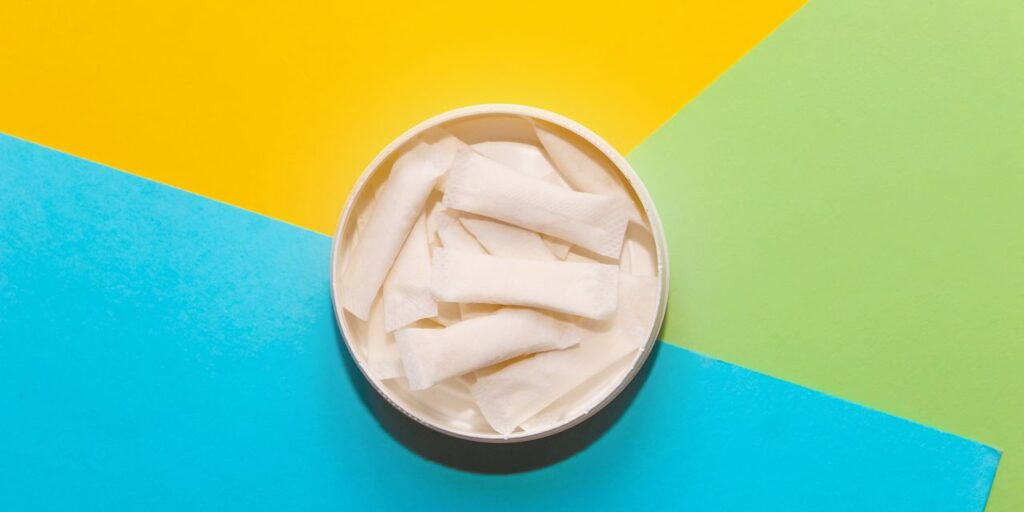Facing the milieu of withdrawal—irritability, anxiety, restlessness—could hit even harder for a teen who’s also dealing with the angsty, hormonal reality of puberty. Not to mention, rates of depression and anxiety are sky-high in young folks these days. While this might be the very thing nudging some of them toward nicotine pouches, Dr. Halpern-Felsher points out, it could also make them more vulnerable to the mental health effects of addiction and withdrawal.
To make matters worse, there’s even evidence that nicotine use during adolescence can fry some of the ongoing development in brain areas related to attention and mood, Dr. Leventhal notes, increasing risk for things like attention deficit hyperactivity disorder (ADHD) and anxiety disorders. These effects are admittedly tough to study in people (ethically speaking, you can’t supply nicotine to young folks and see what happens), but based on epidemiological research and animal studies, they’re definitely a concern, he says.
Nicotine pouches might hurt your health in other ways, too, but research is still catching up.
Amid talk of mood boosts and focus, it can be easy to forget that nicotine is, at its core, a stimulant. Like any other drug in this class, it can raise your heart rate and blood pressure, which could make you jittery. Mark first realized he might be experiencing these effects when his Apple Watch notified him a couple months ago that his resting heart rate had been elevated over the prior month. When he looked at the analytics, he was surprised to find it had been notching up steadily since last year and was clocking in around 15 beats per minute higher than his norm. He now suspects that’s been hurting his workouts: “I feel more winded these days on runs, and I just can’t get after it like I used to,” he says. “I’ve also started to get a bit more anxious.”
Whether these effects of nicotine can harm your heart long-term is not totally clear. “Much of what we know about the cardiovascular effects of nicotine comes from studies on smoking, which involves a bunch of other toxicants that contribute to adverse outcomes,” Dr. Keller-Hamilton says. “When we look at lower-risk oral nicotine products that are similar to pouches, we do see some increased cardiovascular risk, but it’s not a huge increase for major outcomes like heart attack and stroke.” That said, it’s certainly possible that taking in a lot of nicotine from consistent pouch use could worsen your odds, she adds.
Another cluster of potential pouch effects spans the digestive tract, from mouth to stomach. Starting at the top, nicotine pouches can cause gum irritation and recession in the areas where they’re used, Dr. Steinberg says, which can up your risk for gum disease. And moving downward, the sachets might also be linked with a sore throat, upset stomach, nausea, and other GI woes—all among the most commonly reported side effects. Some of this discomfort might spring from how nicotine can shift the release of certain chemicals in your gut (which could up your risk for an ulcer) or relax the valve between your throat and stomach, paving the way for acid reflux. As Dr. Steinberg notes, stomach issues can crop up or worsen with withdrawal, too; cutting out nicotine may change the secretions in your GI tract and fry your nervous system (which syncs with your gut). Hence why it can be tricky to tell whether stomach issues are sparked by the nicotine or your body craving it—particularly when pain lingers both on and off of it, as in John’s case.
Bottom line: Nicotine pouches are safer than cigarettes and vapes—but they’re far from risk-free.
Dr. Keller-Hamilton emphasizes that these products do have a less harmful profile than the tobacco-based products on the market. Which is to say: If someone who already uses a different nicotine item is going to continue regularly using a commercial nicotine product, fully switching to pouches would lower their overall health risk. They may also be cheaper, more accessible, or more palatable than nicotine replacement therapy for some people, or may just represent a new option for those who feel like they’ve tried everything to quit to no avail, she points out.


